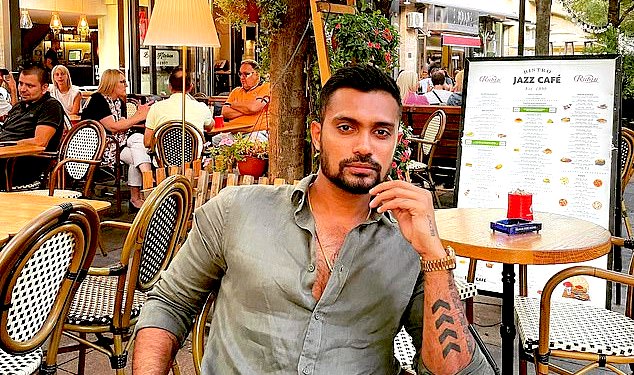Photo courtesy of Hot Fast News
Innocent until proven guilty is a popular legal maxim seems to be flowing out of the mouth of many men and perhaps even an equal number of women who have suddenly developed an acute desire for the law in the wake of the sexual assault allegations against cricketer Danushka Gunathilaka. Why do many feel that he should be afforded this benefit of doubt? And why is that this is one of the strongest reactions many are having? When we find ourselves rushing to the comment section of an article about the alleged rapist is our first instinct to feel rage that a foreign woman who dared to be on an online dating site and agreed to meet him now accuses him of sexual assault? Why is it that many feel the need to say innocent until proven guilty?
Many are quick to point out that she agreed to meet him and have sexual intercourse. It seems insane to some that this could be anything but consensual sex. But here’s the thing; is it entirely possible that women want to and can agree to have sex but also request things like wearing contraception, not performing certain acts and stopping midway because they do not feel comfortable anymore? Do we really want to live in a world where you cannot change your mind about sex you agreed to have because you are not feeling safe or comfortable anymore?
Consent can seem complicated and hard to understand. Mostly because we don’t see it modeled to us “Because unfortunately, when was the last time you saw a sex scene in a film where the guy or girl actually paused to ask the other, ‘Are you comfortable with this?’ or ‘Does this feel good?’” asked writer Sara Semic. When was the last time you had the opportunity to openly talk about sex with responsibility in your homes, schools, workplaces and places of worship?
Rape is not new, sexual assault is not new. But the way we are talking about and approaching it is new. Laws are changing to accommodate and reflect not new realities but rather age old pitfalls of the power imbalances between men and women. And perhaps that’s why it sometimes doesn’t make sense yet. It used to be that if you agreed to have sex, then that’s consensual. But now laws are saying no. You must ask for consent along the way, throughout the act. And that a simple no is not necessarily the only thing that describes an act of refusing to consent. “Yes, but not now”, “Yes, but not this way”, “Yes, but let’s use contraception”, “Yes but not in this place” are all refusing to give consent. Most importantly “Yes we did this last time this same way but today I don’t want to” is also refusing consent. There is non-verbal non-consent too. Pushing away, walking away and covering up. Does this feel too much? Too complicated? Too unnecessary?
The reason that the contours of consenting to sex has changed is because now victims/survivors have started talking about how men and sometimes women have used sexual intercourse to assert power, dominance and violence. It may seem completely unfair to some that this woman, who agreed to meet Danushka Gunathilaka, is now accusing him of sexual assault. Maybe some are angry because he is a cricketer, a superstar, a representation of Sri Lanka and its men. But it’s especially because of this that men like him need to be extra careful. Nothing is entitled to you even if you are a powerful man or woman. And if this woman clearly set out the rules of the act, then it must be followed. But he didn’t. Arguments such as “She agreed to meet him” do not hold enough weight now in the same legal arena from which many have borrowed their new favourite maxim of innocent until proven guilty.
“It’s not that we live in a world of criminals going about committing crimes with impunity. It’s that we live in a world where people don’t believe they are criminals at all, and unfortunately it’s up to the victims to not only come forward but to convince the world that what really happened was a crime in the first place,” said writer Tori Preston.
Life is complicated, relationships are complicated and for many Sri Lankans who have never (or mostly never) had comprehensive sex education and exposure to mature discussions on sex, all of this may seem so other worldly. But what is the point if we do not grow and evolve and mature and learn from the collective history of all of our pasts? And yes, in our anger of our colonial past perhaps some even feel angry that a white woman is accusing our brown boy. But none of that matters. The discourse on sex and violence has changed. And if it’s protecting more people and holding individuals to a higher standard, then we must see where it takes us.
Critically and responsibly we must explore how we can hold people accountable while maintaining the highest level of integrity. Whether we like it or not men and women in many societies hold different power balances. This often plays in to things like sex and relationships. Danushka Gunathilaka already has a history of being in the wrong places and doing the wrong things. And yes, he is entitled to a fair trial to make his case. However we have to also question our own biases if we don’t wonder why a man who has repeatedly allegedly engaged in misconduct with women continued to play international cricket and faced impunity. In the wake of this new and serious accusation I wonder if innocent until proven guilty is the bandwagon anyone wants to jump on at this moment in history when we all have an opportunity to do better for ourselves and for the young men and women watching intently how this story folds out.
